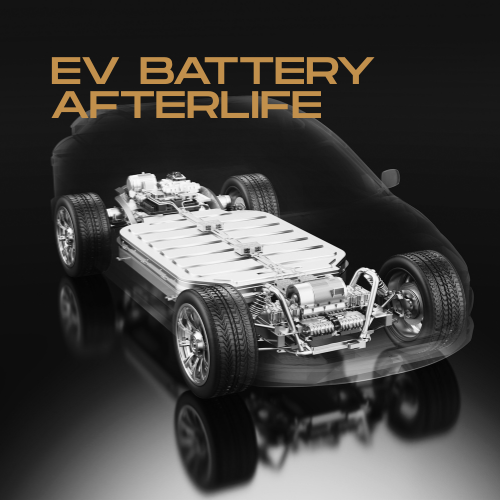The EV Afterlife: Recycling Electric Vehicle Batteries and Reducing Waste
- GSMT
- Jul 30, 2025
- 3 min read
Around the world, 40 million End-of-Life Vehicles (ELVs) are processed every year. This equates to approximately 42m tonnes of waste! In the UK alone, we process between 1.6 and 2 million, with a Government-led recovery and recycling target of 95%.
As an Authorised Treatment Facility (ATF), ensuring ELVs are handled, dismantled and destroyed in an environmentally responsible way is imperative, and with the impending ban on the sale of new petrol and diesel cars by 2030, the number of electric vehicles (EVs) is escalating fast - as is the requirement for safe and responsible recycling methods.

The Rise of EV Waste
Over recent years there has been lots of talk and hearsay about the disposal of EV batteries, and albeit EV battery waste is still relatively low in the UK, these figures will only continue to increase dramatically.
It is estimated that globally, EV battery waste will rise from around half a million tonnes, to multi-millions by 2030-2040.
The UK is improving and developing electrical vehicle battery infrastructures and the processes required to recover valuable materials, but that’s not without its challenges - the chemical makeup of batteries, scalability, cost, sustainability and potential environmental damage from landfill are all key considerations.
What’s Inside an EV Battery?
Each EV battery uses a pack of around two thousand individual lithium-ion cells that work together to power the vehicle, and regulations ensure the responsible management for take-back and recycling to prevent landfill disposal.
The Lifecycle of an EV Battery
Battery life expectancy ranges from 100,000 to 200,000 miles, or around 15-20 years, but it’s the battery capacity at the time of ELV processing that determines what happens next…
Second-Life Uses: When Batteries Still Have Power
If the capacity is at 70% or below, the battery can be repurposed for ‘second-life’ applications such as homes, buildings and the grid. Static battery energy systems can be used to support renewable energy such as solar panels, or to power vehicle charging stations, and on a larger scale, to power manufacturing plants for example.
In fact, Nissan uses retired batteries as a back-up power source in the Amsterdam Area!
Recycling for Raw Materials: When Batteries Can't Be Reused
So what happens when a battery has depleted its capacity? Using specific technologies, valuable raw materials including lithium-ion, cobalt, nickel, manganese, copper and graphite. can be recovered for use in new batteries. A process that involves dismantling the battery pack, crushing and processing the cells and then using a mechanical or chemical process to extract the materials. This can be as much as 95%, vastly reducing the amount of waste going to landfill as well as the need to carry out destructive mining, thus supporting the circular economy.
The Complexities of EV Battery Recycling
Whether an electric vehicle has come to the end of its life due to an accident, battery failure or age, Gold Star Metal Traders are legally permitted to, and have specific expertise and licensing, to scrap electric cars. A role that is vitally important with electric vehicles, owing to the high-voltage systems and specialist components.
Battery packs are large and heavy and require careful lifting with the use of specialist equipment, ready for assessment, which will determine if the battery is viable for second-life applications or needs to be processed for recycling. They are then securely stored ready for transportation, which carries its own set of tight regulations due to carrying dangerous goods.
Gold Star Metal Traders: Your Authorised Treatment Facility
No matter your industry - vehicle dismantlers and scrap yards, vehicle recycling and metal recovery companies, car breaker and salvage operations - any industry related to vehicle disposal, recycling, environmental services or the motor trade, Gold Star are here to help.
Speak to our Specialists
To discuss all your ELV needs, get in touch with a member of our specialist team today:
01354 278382 - March
01553 774634 - King’s Lynn




Comments